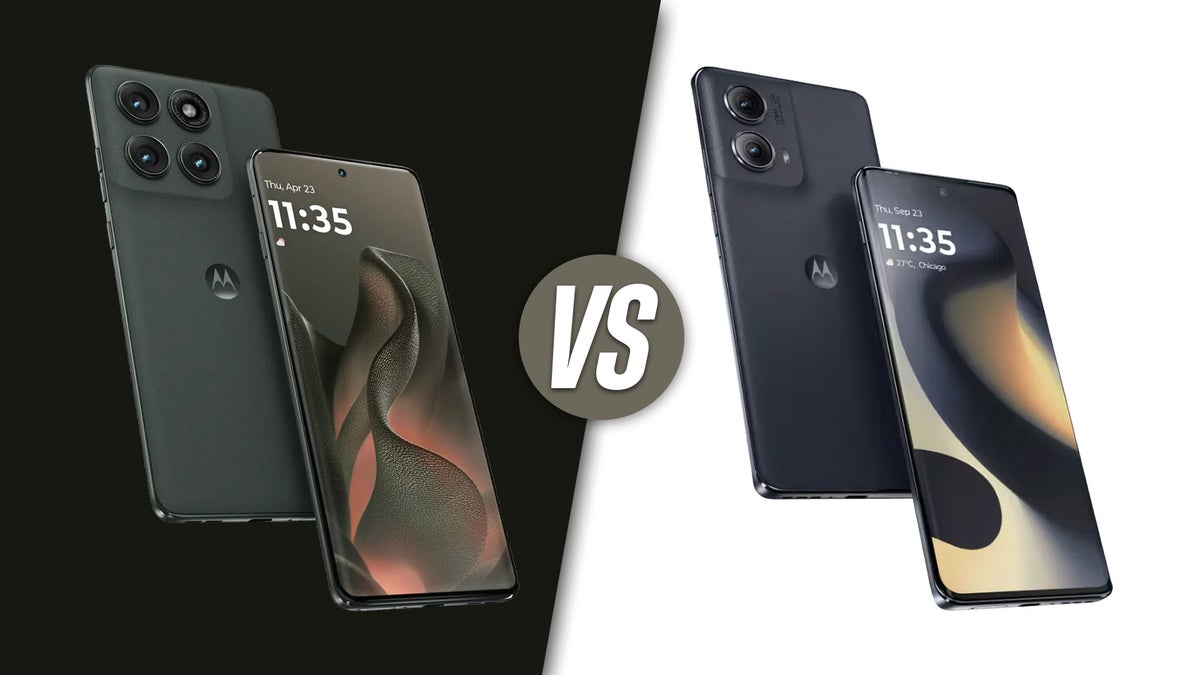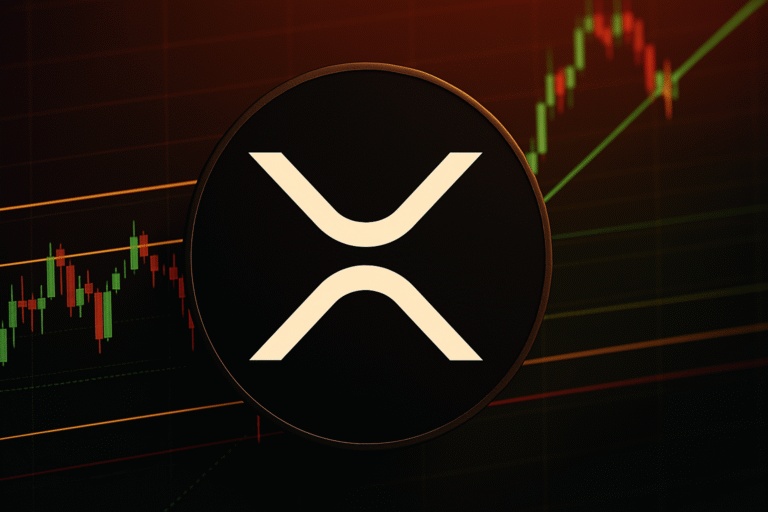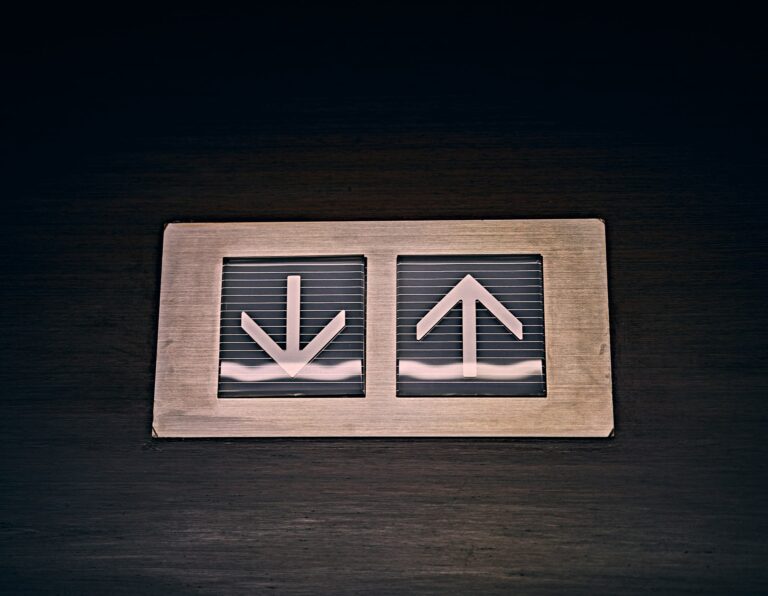Motorola Edge (2025) vs Motorola Edge (2024): Is the new Edge a hit or a miss?
Intro
This here, however, is not your regular annual upgrade: the Edge has scored quite a few changes in comparison with last year’s phone, greatly improving the value.
Should you upgrade, or are you still good to go with the older Edge?
Motorola Edge (2025) vs Motorola Edge (2024) differences explained:
| Motorola Edge (2025) | Motorola Edge (2024) |
|---|---|
| Larger and heavier phone with exquisite design | Slightly more compact device |
| 6.7-inch OLED display w/ 120Hz | 6.6-inch 144Hz OLED display |
| 4500-nit brightness | 1300-nit brightness |
| Better resistance (IP68/69, MIL-STD-810G) | Just IP68 water and dust resistance |
| Dedicated AI Key | Customizable key on the |
| Single color option (Deep Forest) | Black color |
| MediaTek 7400 chipset, 4nm | Snapdragon 7s Gen 2, 4nm |
| 50MP main + 50MP ultra + 10MP telephoto cameras | 50MP main + 13MP ultrawide cameras |
| 50MP front camera | 32MP front camera |
| 5200 mAh battery | 5000 mAh battery |
| $550 starting price | Same $550 starting price at launch |
Table of Contents:
Design and Display Quality
Even better design language
The new Edge (2025) comes forward with a pretty lovely design language, inspired by the range’s signature curved styling that also gives the “Edge” name.
Using a super-smooth and premium-feeling vegan leather back, a thin aluminum frame, and a curved Gorilla Glass screen, the Motorola Edge (2025) is one of the better-designed mid-range devices of 2025, beating most of its rivals in terms of look and feel.
The older Edge also employs the same general design language. It has a slightly smaller screen, as well as slightly thicker bezels.
The new Edge is slightly taller, wider, and heavier in comparison with its predecessor, but both devices feel extremely comfortable to use and handle. Either one feels way more compact than it actually is.
| Motorola Edge (2025) | Motorola Edge (2024) |
|---|---|
| Thickness 8.6 mm |
Thickness 7.2 mm |
| Dimensions 152.8 x 72 |
Dimensions 146.9 x 70.5 |
| Weight Around 200 grams |
Weight 162 grams |
While both phones have customizable buttons on the top upper-left side of the frame, these serve different purposes. The Edge (2025) boasts a dedicated AI Key, used to launch the Moto AI suite of features on the device. This button is not customizable. Meanwhile, the older phone boasts a customizable key that lets you map different features to it.
In terms of resistance against the elements, the new Moto is simply better. It comes with the highest water- and dust-resistance available: IP68/69, which ensures protection against submersion as well as strong water pulse jets from any direction. There’s also military-grade MIL-STD-810 shock resistance, which should give you a peace of mind about the phone’s resistance. At the same time, the previous Edge has only IP68 in tow, so not nearly as resistant, but that shouldn’t be that much of a concern in regular everyday life.
The Moto Edge (2025) is available in a muted green Deep Forest color, while the older Edge only came in Black.
Another minor difference between the two devices is in the display section. Motorola has graced the new Edge with a 6.7-inch screen, a small improvement over the 6.6-inch display found on the Motorola Edge (2024). Unfortunately, both displays are curved and therefore exhibit tons of reflections at the crest of their curves, which is detrimental to the overall user experience.
Other than that, both are using FHD+ OLED panels, with the newer Edge boasting a slightly denser screen with higher PPI, but you will be hard-pressed to notice a difference with the naked eye. In terms of refresh rate, we are actually looking at a slight downgrade: the older phone boasted 144Hz, while its successor can only reach 120Hz. Still smooth, though.
As per our in-house tests, it’s the newer Motorola that’s slightly brighter and more color-accurate. However, the minimum brightness is very poor on both, you will feel that when using your phone at very low light.
Performance and Software
Two humble phones
The Motorola Edge (2025) is equipped with a MediaTek Dimensity 7400 chip, which is a humble 4nm chipset fit for a humble mid-ranger. However, humble as it is, it still delivers a slight improvement in the performance in comparison with its predecessor, which carries the even humbler Snapdragon 7s Gen 2.
Both devices feature 8GB of RAM and 256GB of on-board storage in their base version. That’s great, but what’s not great is the UFS 2.2 speed of it, which is super-slow in this day and age and definitely doesn’t add up to the overall speediness of the phone. Still, it’s a pair of $550 phones.
| Phone1 | Phone2 |
|---|---|
| Chip Google Tensor G5 |
Chip Qualcomm Snapdragon 8 Elite |
| Process 3nm |
Process 3nm |
| RAM, Storage 16/256GB 16/512GB LPDDR5X RAM |
RAM, Storage 12/128GB 12/256GB LPDDR5X RAM |
CPU Performance Benchmarks:
As per our tests, the Motorola Edge (2025) definitely beats its predecessor in overall performance in both the Geekbench single- and multi-core tests. Yet, don’t get fooled: neither phone is a spectacular performer, so you will have to deal with modest performance and some slight hiccups when pushing the hardware close to its limits.
The new Motorola delivers an equally improved graphics performance in comparison with the older Edge.
Camera
One extra camera is great
Motorola has greatly changed the camera setup with the Motorola Edge (2025).
The main camera on both remains the same, a 50MP unit with an F1.8 aperture and a modest 1/1.56″ size, but the ultrawide has been upgraded from a 13MP one to a 50MP unit, which is a major improvement.
But wait, there’s more––while the older Edge had just two cameras, the new has scored a dedicated 10MP telephoto with 3X optical zoom, which is a great addition to an affordable mid-ranger. It’s a humble camera with a small 1/3.94″ sensor, but regardless, having a dedicated zoom lens is a major boon to the overall utility.
And it seems zoom is one of the things that helps the new Moto Edge achieve a better score than its predecessor.
In our dedicated camera score test, the older phone delivers slightly better results in both the still photo and videography tests. The difference is small and could probably be traced to the different image processing algorithms that either chipset delivers.
PhoneArena Camera Score:
Despite the lower score, we’d totally take the new Motorola Edge for the added versatility thanks to the telephoto zoom camera.
Moto Edge (2025) camera samples
Battery Life and Charging
Minor upgrades
The Motorola Edge (2025) carries a slightly larger 5,200mAh battery in comparison with its predecessor, which “only” carried a 5,000mAh battery unit.
Sadly, despite the increase, it appears that the Snapdragon chip on the older model was slightly more efficient, so it achieved better results in our dedicated battery tests.
The Moto Edge (2024) achieves a battery life estimate of seven hours and 23 minutes, while the newer model is roughly half-an-hour worse at six hours and 45 minutes. The biggest gap between the two models is in the standard browsing test, where the older Motorola achieves a significantly better result. Still, the new Edge takes one back in our dedicated gaming test, where it lasts around 40 minutes longer in comparison.
PhoneArena Battery and Charging Test Results:
Both phones support up to 68W wired charging and 15W wireless charging.
Specs Comparison
| Moto Edge (2025) | Motorola Edge (2024) |
|---|---|
| Size and Weight 161.2 x 73.1 x 8 mm 181 gr |
Size and Weight 159.6 x 72 x 8.1 mm 174 gr |
| Display 6.7-inch OLED 120Hz |
Display 6.6-inch OLED 144Hz |
| Processor MediaTek Dimensity 7400 (4nm) |
Processor Snapdragon 7s Gen 2 (4nm) |
| Versions 8/256GB for $550 |
Versions 8/256GB for $550 |
| Cameras 50MP main, f/1.8 50MP ultra-wide, f/2.0 10MP F2.0 telephoto 3X 50MP front |
Cameras 50MP main, f/1.8 13MP ultra-wide, f/2.2 32MP front |
| Battery 5,200 mAh |
Battery 5,000 mAh |
| Charging 68W wired 15W wireless |
Charging 68W wired 15W wireless |
Which one should you buy?
Should you upgrade? Well, if you remember, that’s the question we vowed to answer in the beginning, but sadly, we can’t give an answer without context.
If you’re using the older Motorola Edge (2024), you might not gain much by upgrading. Sure, the new device is better-designed and has one extra camera, but it isn’t as optimized, and the battery life and charging times aren’t improved.
If you’re coming from an older Motorola, definitely consider upgrading to the Motorola Edge (2025) though, it’s a good-value phone only hampered by its mid-range chip.






